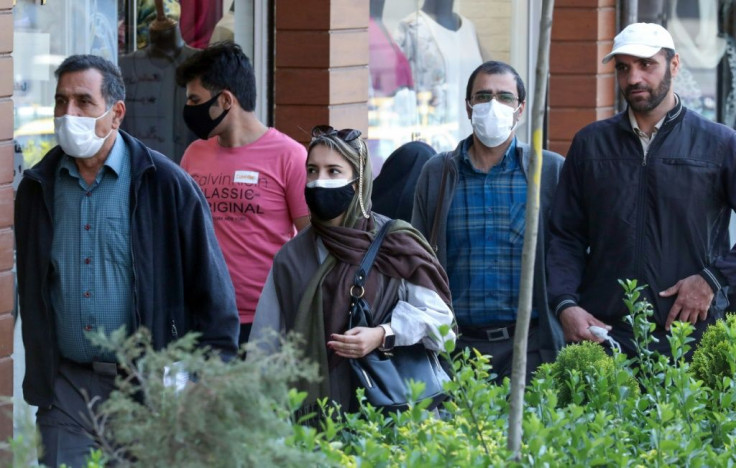Iran Covid Cases Hit Two Million In 'Meteoric' Rise
The number of confirmed coronavirus cases in Iran passed the two-million mark Thursday, while the daily caseload set a new record high in what a health official warned amounted to a "meteoric" spike.
As the Islamic republic reached the grim milestone, some health experts called for a lockdown of the capital Tehran to contain the country's fourth Covid-19 wave.
Iran is battling the Middle East's deadliest coronavirus outbreak, and officials have blamed the latest surge on trips made during last month's Persian New Year holidays.
Over the past 24 hours, the country officially recorded 22,586 new cases of infection, reaching a new high, health ministry spokeswoman Sima Sadat Lari said.
This marks an increase of more than 1,600 cases over the previous record, set just the day before.
Iran also recorded an additional 185 coronavirus-related deaths, Lari said, bringing the total to 63,884.
Daily fatalities and infections had remained relatively stable below the 100 and 7,000 mark in January, rising only slightly until a sharp increase in late March.
Iran's conservative and reformist press Thursday blasted President Hassan Rouhani's government for allowing holiday travel in the face of an expected new wave.
It came after a top official said some in the national virus taskforce had opposed a travel ban before the holidays.
"Some prevented us from using the (new year holidays) as a golden opportunity to put out the coronavirus fire," the deputy health minister, Iraj Harirchi, said Wednesday.
He described the Covid infection rate as "meteoric" and said it was now "highly probable" that Iran would suffer 600 deaths a day.
Some officials, including Health Minister Saeed Namaki, have admitted actual virus numbers are likely higher than official figures.

Payam Tabresi, a health expert at Tehran's Masih Daneshvari hospital, told the Ebtekar daily that locking down the capital for "at least two weeks" was the "only way".
"The situation is bad," Tabresi said. "One really cannot imagine it being any worse."
Authorities had warned of a rise in the spread of the more contagious British variant and a fourth wave prior to the holidays, strongly advising against travel.
"We've now lost the reins" of the virus, Namaki said, complaining "no one listened" to him regarding holiday trips.
Quoted by government-run Iran daily, Hadi Khaniki, a university communications lecturer, attributed the disregard for such advice to a "lack of trust and a gap" between the people and authorities.
Dozens of towns and cities including Tehran are classified as "red", the highest rating on the coronavirus risk scale, requiring all non-essential businesses to close.
"They allowed travelling, and Tehran went red again. What else could be the reason?" said Mohsen, a shopkeeper in Tehran, complaining that the shutdown would "ruin people's businesses".
"I think the shutdown should have happened two weeks ago(before the new Iranian year holidays), or even a month ago," a jewelry seller said, identifying himself only by his family name, Gahsempour, whose business was ordered to be temporarily closed as well.
Iran has avoided imposing a full lockdown on its population of 82 million since the pandemic started more than a year ago.
Instead, it has resorted to limited and shifting measures, such as temporary bans on travel or businesses.
The country launched its vaccination drive in February, but the campaign has progressed slower than authorities had hoped.
© Copyright AFP 2024. All rights reserved.





















